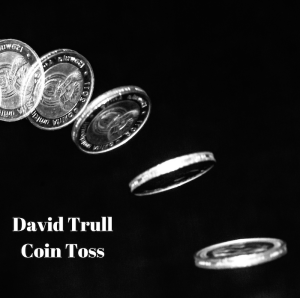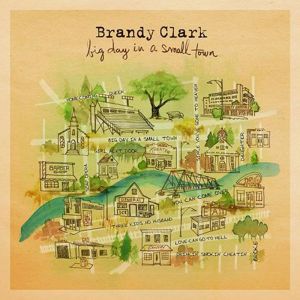Craig Morgan

A Whole Lot More To Me
* * *
For his seventh album, A Whole Lot More To Me, Craig Morgan wanted to craft a record that broke down genre stereotypes and cast him in a new light. It’s his first album of original material in four years as well as his second album for Black River.
The first single, “When I’m Gone” was released back in September and peaked at #48. Written by Justin Ebach and Steven Dale Jones is an optimistic banjo-driven uptempo about wanting to be remembered as someone who lived life to the fullest.
The second single, released in May and yet to chart, is the power ballad “I’ll Be Home Soon” written by Ebach, Jones and John King. The lyric is typical of modern country love songs, but Morgan brings an emotional gravitas that elevates the song to just above generic.
Morgan had a hand in co-writing five of the album’s twelve tracks. “Living On The Memories” is a bombastic power ballad he collaborated on with Scott Stepakoff and Josh Osborne. Mike Rogers joined him for the title track, where he goes out of his way to debunk his country boy image with an interesting laundry list of illustrations emoted by a vocal that could’ve been toned down a few notches. “I’m That Country” walks everything back by devolving into Morgan’s typical style. “Remind Me Why I’m Crazy” is an excellent ballad about lost love with a cluttered treatment that intrudes on my overall enjoyment. Morgan’s final co-write, “I Can’t Wait to Stay,” is nothing more than a song about remaining in the town where your family has generational roots.
It feels as if a prerequisite of any modern day country album is having a song co-written by Shane McAnally. His contribution, a co-write with Eric Paslay and Dylan Altman is “Country Side of Heaven,” which is actually a great song. The overall track would’ve been better served with an acoustic arrangement, which would’ve brought fourth the interesting lyric a lot more.
“All Cried Out” is a bombastic power ballad ruined by atrocious wall-of-sound production that causes Morgan to over sing. “Nowhere Without You,” co-written by Michal McDonald and John Goodwin, is much better although I found the piano based production rather bland. Will Hoge and Gordie Sampson teamed with Altman on “Who Would It Be,” a name-check song about the legends you would spend time with if you could.
The final cut, “Hearts I Leave Behind,” features Christian Rock singer Mac Powell. The song was originally recorded by Pete Scobell Band Featuring Wynonna Judd, which I reviewed last year. It’s far and away the crowning achievement of A Whole Lot More To Me and a perfect song for Morgan.
The marketing materials for A Whole Lot More To Me describe the album as ‘sexy,’ which I most certainly would not. There is hardly anything here in that vein, unlike Dierks Bentley’s Black, which makes it an odd descriptor. Morgan does sing at full power, which showcases his range but unintentionally sound like Blake Shelton circa 2008. The album is bombastic and unremarkable on the whole, but I give Morgan credit for giving into mainstream pressures without selling his soul. A Whole Lot More To Me is nowhere near the upper echelon of albums for 2016, but it is far from the scrap heap. He could’ve done better, but it’s clear he is giving his all.

 The balance skewed Taking The Long Way-heavy (although “Easy Silence, complete with a lyrical video, and the unexpected and rarely performed “Silent House” were fabulous), which allowed banjos, fiddles and dobros to act as accents opposed to centerpieces for the majority of the evening. But this being a Dixie Chicks show, they honored their past with fiery renditions of “Sin Wagon,” “Wide Open Spaces,” “Some Days You Gotta Dance,” “Mississippi” and “Not Ready To Make Nice.” Lush renditions of “Cowboy Take Me Away” and “Landslide” were also excellent, while the latter had a beautiful backdrop containing reflective images of the Chicks’ heads.
The balance skewed Taking The Long Way-heavy (although “Easy Silence, complete with a lyrical video, and the unexpected and rarely performed “Silent House” were fabulous), which allowed banjos, fiddles and dobros to act as accents opposed to centerpieces for the majority of the evening. But this being a Dixie Chicks show, they honored their past with fiery renditions of “Sin Wagon,” “Wide Open Spaces,” “Some Days You Gotta Dance,” “Mississippi” and “Not Ready To Make Nice.” Lush renditions of “Cowboy Take Me Away” and “Landslide” were also excellent, while the latter had a beautiful backdrop containing reflective images of the Chicks’ heads.

